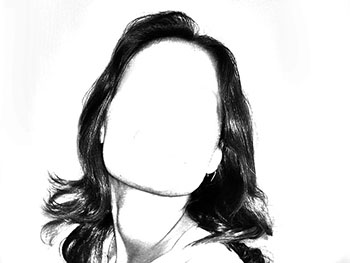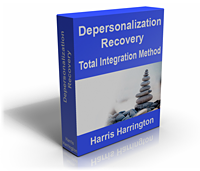Harris Harrington describes how personality factors contribute to Depersonalization Disorder, and what you can do to alleviate your symptoms.
Although trauma, anxiety, and obsession are the three main contributing factors of DP, personality and temperament underlie the entire trifecta.
In this article I’m going to go into detail about inborn personality factors that contribute to depersonalization. I’m also going to talk about things you can do, given this disposition, to counteract DP enhancing habits.
Highly Sensitive People
Most people with depersonalization are highly sensitive people. (This term is similar to harvard psychologist Jerome Kagan’s concept of the “inhibited personality”) This means that they become overaroused (not sexually) to too much stimuli. Overarousal has to do with being put in a state of frazzle due to too much sensory input coming in from the environment. Highly sensitive people essentially sense MORE information than non sensitive people. They also process information more deeply, and may need more time to think things over. They usually notice more subtleties than non-HSPs.
- They tend to appreciate subtler or finer details more than non-hsps do.
- They tend to be heavily moved by the arts.
- They are more attuned to others’ emotions in an almost psychic way
- Tend to be sensitive to loud noises, bright lights, and crowded places
- Often times labeled as “shy” or reserved (although many HSPs are highly sociable)
Elaine Aron wrote the book called The Highly Sensitive Person. I highly recommend it for any DP sufferer, as you will see much of the content relates to the disorder and there are many good strategies for managing overarousal. My one gripe with the book is that she seems a little resigned to the temperament, and seems to easily slap the “HSP” label on people. My view is that HSPs should focus on things that they can change, and not use the label as a limiting term.
In the book she says there are basically two groups of HSPs: a super sensitive group, and a less sensitive group. It’s my guess that most depersonalized people are super sensitive.
Being highly sensitive has many MANY advantages. But at times it can lead to overarousal, anxiety, and certainly contributes to DP.
Because traumatic life experiences are a major underlying cause of DP, it’s no wonder that a person who is more sensitive would be more profoundly impacted by that trauma.
Basically, an HSP who experiences trauma is more likely to dissociate in response to that trauma. Dissociation is a psychological mechanism to protect the mind from too much psychic pain. HSPs would be more likely to do so.
An environment that would not be traumatic for a non-HSP, could be highly traumatic for someone who IS highly sensitive.
Another element of the HSP is something called behavioral inhibition. Basically this just means someone who is more wary upon first encountering a certain situation or person. HSPs will be more reserved at first when meeting someone or trying something new. Inhibition is behavioral system related to avoidance.
Behavioral activation, on the other hand, is related to approaching. This is the type of behavior we engage in when we initiate a new relationship or explore our environment (two very good habits to cultivate in order to overcome DP).
Myers-Briggs Personality Type
Most people with depersonalization are introverts. They are also intuitives.
Introversion and intuition are two components of personality in the jungian sense. Carl Jung was a psychoanalyst and mythologist (as well as just a cultural analyst) and he came up with a system of understanding personality. During World War II this system was expanded by a mother-daughter pair of psychologists.
This system is called the Myers-Briggs Personality Type Indicator (MBTI).
Although its one of the more well known personality systems, it is still not widely accepted by academics (except they use it heavily in business, and Harvard Business School has new students take the MBTI test the first week of enrollment).
I can’t describe the entire system here in detail. If you want to read more I recommend the book The Art of Speed Reading People, or you can just search the web.
My MBTI type is INFP, and it’s not a coincidence that this is the most common personality type for people with Depersonalization.
Interestingly, I came across a poll of depersonalized people on a forum, and the top four types were INFP, INTP, INFJ, and INTJ. They accounted for close to 80 percent of people who took the poll.
You might notice something: the first two letters are all IN.
Each letter stands for a different aspect of personality. “I” stands for introversion, and “N” stand for iNtuition.
These both have very specific jungian definitions. Don’t get the common “pop” psychology associations mixed up with those.
Introversion
In the jungian sense, introverts are people who get drained of psychic energy when they are around others. When they are alone, they feel more energized, and when they have to socialize they usually get very tired.
In addition to energy, introverts tend to focus their mind internally, instead of focusing on the external world.
iNtuition
Intuitives focus their minds on abstract ideas. They can synthesize two ideas very well, and “connect the dots”. They are not fond of details, but are great with theories. Intuitives tend to excel in school.
Intuitives are also less “in their bodies”. Not only do they focus on abstract ideas, but they also don’t focus on sensory input as much.
The opposite of an intuitive is a Sensor, someone who tends to focus on details, and lives in a very physical, concrete world. They often have trouble with theories, and generalities, but can usually remember and spit back tons of details.
You can see immediately why intuitives would be more prone to DP. In DP, it’s very common to not feel “ in your body”, and to be disconnected from the environment.
Introverted Intuitives
Introverted intuitives not only focus their minds inward, but they also focus on abstract theoretical ideas. They have more difficulty focusing on sensory input coming in, and or better at getting caught up in an internal world of abstract ideas.
To combat this you must EXTROVERT your mental focus, and start focusing on the stimuli coming through your five senses. Sports are great ways of FORCING your mind to engage in these two forms of mental energy. Learning a language also demands you to focus on new specific sensory information, and to get you to focus on tons of details.
It may feel tiring or weird to get out of your head, since your strongpoint is introversion and thinking abstractly.
This is one of the big reasons why so few extroverted sensors have DP. Their mental tendencies defend against it very strongly.
This is also one of the reasons why I recommend mindfulness meditation as a necessity for people with depersonalization. Focus on a spot on the wall for 20 minutes a day, and bring your awareness back to the spot every time your mind wanders. Set a timer so that you can stay focused.
A highly sensitive, introverted intuitive meets trauma and stress
Most people with DPD are highly sensitive, meaning their nervous system takes in a lot of information at any given time, and that they can easily become overaroused to too much stimuli.
You can see how a certain personality, plus traumatic events can cause a person to develop DP.
Some depersonalized people are extroverts. Its likely that they are still highly sensitive (a minority of HSPs are extroverts). A common extrovert type found in DP is the ENFP (often times similar to the INFP).
So Depersonalization is just part of who I am?
It’s extremely easy to just identify with DP, and see it as fundamentally part of you.
That’s completely wrong.
Depersonalization is a tendency. You have a predisposition for it, but it’s not a fate. It’s not part of your “essence”.
Depersonalization is due to introversion, abstract thinking, creativity, and sensitivity gone amok, and used in the wrong ways. This is commonly a response to trauma, neglect, isolation and a suboptimal childhood environment. People with DP have certain personality traits that, if gone unchecked and allowed to create an imbalance, can be a contributing cause for DP to occur.
The key for people with DP is balance. Since they are so in their heads, its important to get outside of your head, to do something that involves extroverting your awareness and dealing with concrete physical things.
Don’t make an understanding of temperament an excuse for not improving and growing
To be honest, you don’t really know for sure if a certain behavior or tendency is due to inborn biology, or acquired from learning. For example, being prone to introversion could be due to biology, but could also be exacerbated by spending most time alone in a suburban or rural home, with nothing to do but space out and develop an imaginary world.
If you took the same introvert and put them in an extremely social household with parents that put their children in activities, that same person might actually be an extrovert, and possibly would not have developed DP.
Don’t say to yourself “well, it’s just biological destiny, I guess I can’t change.”
That’s not the point of this article. The point of this article is to understand that your personality PLUS the environment, the trauma you experienced, your habits, and the other forms of learning led to DP. It’s not just biology (of course you would understand this if you read any of my other articles.)
That’s why I haven’t spoken much on personality before because for the most part it’s important to focus on what you can do to overcome your disorder.
Yes, you can change
If you’re stuck in your head, sitting alone in your room with few social connections, or external real world responsibilities you may feel stuck in an introverted world of constant obsession over symptoms.
Your ability to engage in “extroverted sensing” is weak, like a muscle that has atrophied. If you develop your extroverted sensing, you will help counteract the tendencies of introverted intuition.
You can join a sports team, start engaging in conversations, learn how to tell stories and be the center of a social gathering, or even play a game that requires constant external focus.
Psychic balance is a symbol of self growth. It takes time.
Believe in yourself, be patient, and engage in new behaviors and ways of being. You can truly change, though you are going to have to step outside of your comfort zone and do things that “aren’t you”.
If you hold on to tightly to a notion of your own self image, and restrict your behavior, you may not learn what you are truly capable of.
It’s by letting go of an irrational sense of self, and allowing yourself to explore different ways of being, (even doing activities that seem uncharacteristic of who you are) that you can truly find yourself, and develop as a person.



